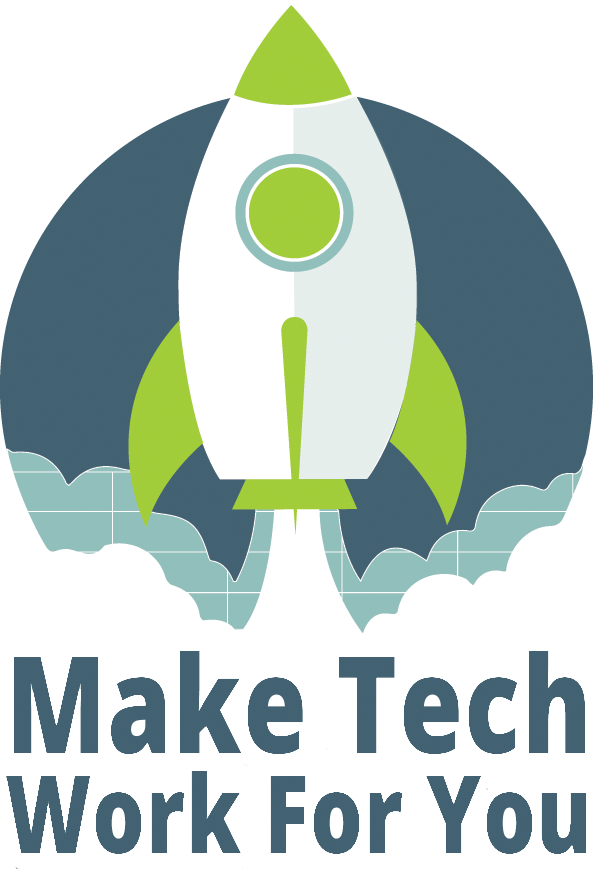THERE IS NO OPTING-OUT OF THE INFORMATION AGE
What does is mean to be living in the information age?
There are a lot of different ways to breakdown and categorize the times we have lived in as humans. If we look really broadly, we see that the names we have given to different time periods throughout history are pretty well descriptive of what was really important at that time: The Stone Age (stone), The Bronze Age (bronze), The Iron Age (iron), The Middle or Dark Ages (nothing?!), The Machine Age (machines), The Atomic and Nuclear Ages (you get the point).
The most highly valued thing in today’s world is invisible.
Like the atomic and nuclear ages, the most valuable thing in the world starts out basically invisible. You can’t really see or put a shape to nuclear energy until you walk into the gigantic facilities made to produce it, or imagine the shape of a bomb used to transport it. Information similarly has no true shape or form - it is all inside our heads at first. But then we built tools to make information visible. Stone tablets, papyrus scrolls, the printing press, typewriters, computers, and data storage hardware have all been means of showing information. So what makes the information age different than all the rest of history, in which it has been a cornerstone of the human experience to collect and make information visible?
The information age is about what you do with information, and how fast.
How fast can information be recorded on a stone tablet? How fast can it be shared? How fast can it be updated? Yeah, not fast at all. In fact, really slowly if at all. In the information age, value is found not only in the quantity and quality of the information you have - in fact, just having a ton of information won’t do you much good if you don’t also have the tools, skills, and capacity to understand it, manipulate it, present and use it. Once you’ve got information, what will you use it for? Mission-driven work in this age uses information to gain insights, gain support (financial or otherwise), tell stories, compel change, and make impact. The value of information to mission-driven work is in how it can increase the quality, quantity, and speed of making impacts and change.
Let’s be real, using information isn’t a new thing.
It is second-nature to us as humans to bring in the inputs of information all around us - the weather, the distance between places, the number of things you have - anything we see and do is information that we use in some way. We do this really really efficiently for some critical human tasks, like the ones that contribute to keeping us alive. Fight or flight is an extremely quick reaction to a set of inputs that trigger these responses in us - we take in the information as it comes to us, and we respond to it very quickly by engaging or running in the other direction. It keeps us alive and sane. But try to do that with 100-times the number of inputs, or as a group of people instead of as just one person. That’s when you can encounter overwhelm and paralysis or people running into each other. In the information age, we have the tools to collect and review so much more data than we’ve ever had access to in the past, and in the blink of an eye.
Real-Talk: You CAN NOT opt-out of the information age
I am very passionate about this fact. There is no turning back and no hiding under a rock. You are part of the information age no matter what. But that doesn’t have to be a big and scary commitment - in fact, the awesome thing about living in the information age is that you get to join all the skills you’ve already got (community building, development, social work, relationship building, problem-solving, etc.) with information technology, all of which can lead to more meaningful, larger-scale, and faster impacts wherever you are working and whatever you are doing.
The gateway to the information age
You need to be comfortable using technology and data to thrive in the information age, and to use information with speed and at scale to drive and enhance your impact. That doesn’t mean that you all of a sudden need to know how to write code or build an app for Salesforce or become a data architect. But you do need the mindsets for using technology and data that will get you started. One way of the most practical and useful approaches to learning those mindsets is through learning Excel. Excel is a gateway for you into any other technology that you may need and use. The mindsets that lead to learning and using Excel in a way that works for you are exactly the same ones that give you entry into the world of all the rest of the technology tools managing the information age.




